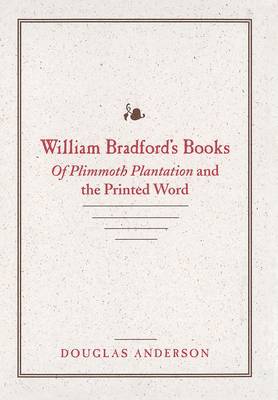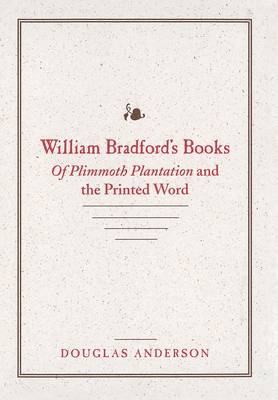
- Retrait gratuit dans votre magasin Club
- 7.000.000 titres dans notre catalogue
- Payer en toute sécurité
- Toujours un magasin près de chez vous
- Retrait gratuit dans votre magasin Club
- 7.000.0000 titres dans notre catalogue
- Payer en toute sécurité
- Toujours un magasin près de chez vous
William Bradford's Books
Of Plimmoth Plantation and the Printed Word
Douglas AndersonDescription
Widely regarded as the most important narrative of seventeenth-century New England, William Bradford's Of Plimmoth Plantation is one of the founding
documents of American literature and history. In William Bradford's Books this portrait of the religious dissenters who emigrated from the Netherlands to New England in 1620 receives perhaps its sharpest textual analysis to date--and the first since that of Samuel Eliot Morison two generations ago. Far from the gloomy elegy that many readers find, Bradford's history, argues Douglas Anderson, demonstrates remarkable ambition and subtle grace, as it contemplates the adaptive success of a small community of religious exiles. Anderson offers fresh literary and historical accounts of Bradford's accomplishment, exploring the context and the form in which the author intended his book to be read.
Spécifications
Parties prenantes
- Auteur(s) :
- Editeur:
Contenu
- Nombre de pages :
- 296
- Langue:
- Anglais
Caractéristiques
- EAN:
- 9780801870743
- Date de parution :
- 08-01-03
- Format:
- Livre relié
- Format numérique:
- Genaaid
- Dimensions :
- 162 mm x 239 mm
- Poids :
- 521 g

Les avis
Nous publions uniquement les avis qui respectent les conditions requises. Consultez nos conditions pour les avis.






